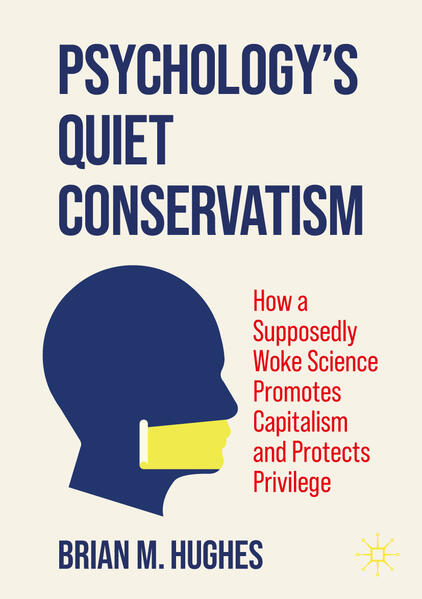What if psychology isn t as liberal as we think?
Psychology is often seen as a progressive discipline a champion of social justice, diversity, and liberal values. But this provocative book challenges that assumption. It argues that psychology, from its historical entanglements with eugenics and colonialism to its modern-day focus on individualism, has long served to reinforce the status quo.
Even as many psychologists identify as politically liberal, the field s methods, theories, and institutions often promote a worldview that downplays inequality, pathologizes dissent, and resists structural change. Psychology s emphasis on personal responsibility, resilience, and self-help frequently aligns more closely with conservative ideals than with progressive ones.
This book explores how the myth of a liberal bias in psychology has been weaponised in today s culture wars and how it distracts from the field s real political blind spots. It asks: what would it mean for psychology to truly live up to its promise of promoting human welfare?
Accessible, deeply researched, and sharply argued, Psychology s Quiet Conservatism is essential reading for anyone interested in how science shapes society and how society shapes science.
Inhaltsverzeichnis
Part I The Myth of Liberal Bias in Psychology. - 1. Universities Under Fire. - 2. Psychology at the Centre of Cancel Culture. - 3. The Claim of Liberal Bias in Psychology. - 4. The Problem with Claims about Psychology s `Liberal Bias . - 5. Culture War Psychology: Why the Liberal Bias Myth Persists, and Why it is Damaging. - 6. Liberal Bias in Psychology: An Intellectual Mirage. - Part II Conservative Psychology, Past and Present. - 7. Legacy Conservatism. - 8. What the Standard History of Psychology Usually Ignores. - 9. Psychology s Roots in Theology. - 10. Psychology s Roots in Class Conflict. - 11. Psychology s Roots in Eugenics. - 12. Psychology s Conservative Paradigms. - 13. From Conservative Past to Neoliberal Present. - Part III Psychology, Capitalism, and Human Welfare. - 14. Hierarchies and Hysteria. - 15. The Contrivance of Capitalist Minds. - 16. Capitalist Psychology. - 17. The Capitalist Denial of Illness. - 18. `Personality Is Bad For You . - 19. The Psychologising of the Sick. - 20. Unidentified Psychic Objects. - 21. Pathology and Protectionism. - Part IV Modernity and Declinism. - 22. Generation Snowflake. - 23. Depoliticising Youth Anxiety. - 24. Biological Reductionism Revisited. - Part V The Coddling of Conservative Minds. - 25. How Psychology Reinforces (and thus Perpetuates) Social Conservatism. - 26. Example #1: By Standing Up Against Safetyism. - 27. Example #2: By Pathologising Dissent. - 28. Example #3: By Labelling Deviance. - 29. Example #4: By Stigmatising Negativity. - 30. Example #5: By `Othering Ethnic Minorities. - 31. Example #6: By Policing Gender Identity. - 32. Example #7: By Perpetuating Traditional Gender Stereotypes. - 33. Example #8: By Exceptionalising Humanity. - Part VI Psychology s Whiteness Problem. - 34. Weird Science. - 35. Structural Racism in Psychology. - 36. Mechanisms of Whiteness. - 37. Silence as Supremacy. - Part VII Academic Exceptionalism and Psychology s Blind Eye. - 38. Internalising the War on `Woke . - 39. Good Science, Bad Science, Pseudoscience. - 40. Exceptionalism in Psychology. - Part VIII Beyond `Liberal Bias : Four Paths to a Well-Adjusted Psychology. - 41. Rights and Responsibilities. - 42. Path #1: Effortful Diversity. - 43. Path #2: Constructive Action in Education and Academia. - 44. Path #3: Constructive Action in the Public Square. - 45. Path #4: De-privileging Psychology.



































